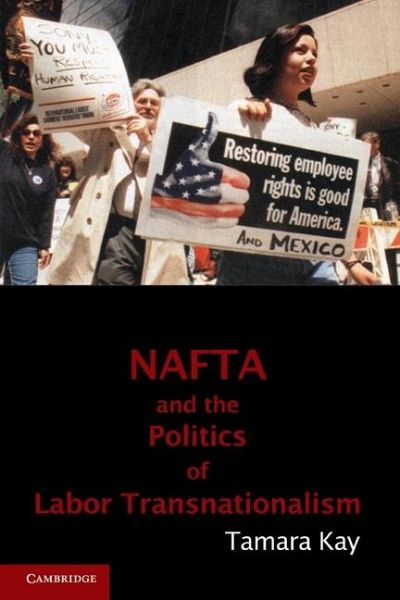
NAFTA and the Politics of Labor Transnationalism (eBook, ePUB)
Versandkostenfrei!
Sofort per Download lieferbar
18,95 €
inkl. MwSt.
Weitere Ausgaben:

PAYBACK Punkte
9 °P sammeln!
When NAFTA went into effect in 1994, many feared it would intensify animosity among North American unions, lead to the scapegoating of Mexican workers and immigrants, and eclipse any possibility for cross-border labor cooperation. But far from polarizing workers, NAFTA unexpectedly helped stimulate labor transnationalism among key North American unions and erode union policies and discourses rooted in racism. The emergence of labor transnationalism in North America presents compelling political and sociological puzzles: how did NAFTA, the concrete manifestation of globalization processes in No...
When NAFTA went into effect in 1994, many feared it would intensify animosity among North American unions, lead to the scapegoating of Mexican workers and immigrants, and eclipse any possibility for cross-border labor cooperation. But far from polarizing workers, NAFTA unexpectedly helped stimulate labor transnationalism among key North American unions and erode union policies and discourses rooted in racism. The emergence of labor transnationalism in North America presents compelling political and sociological puzzles: how did NAFTA, the concrete manifestation of globalization processes in North America, help deepen labor solidarity on the continent? In addition to making the provocative argument that global governance institutions can play a pivotal role in the development of transnational social movements, this book suggests that globalization need not undermine labor movements: collectively, unions can help shape how the rules governing the global economy are made.
Dieser Download kann aus rechtlichen Gründen nur mit Rechnungsadresse in A, B, BG, CY, CZ, D, DK, EW, E, FIN, F, GR, HR, H, IRL, I, LT, L, LR, M, NL, PL, P, R, S, SLO, SK ausgeliefert werden.













